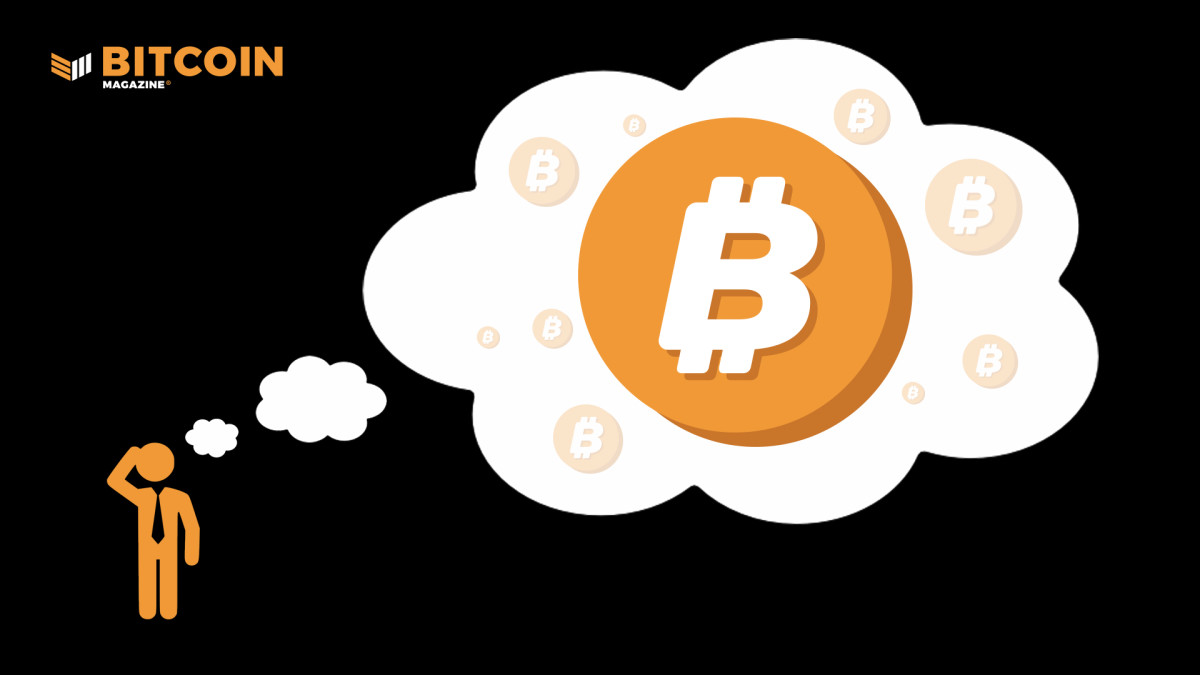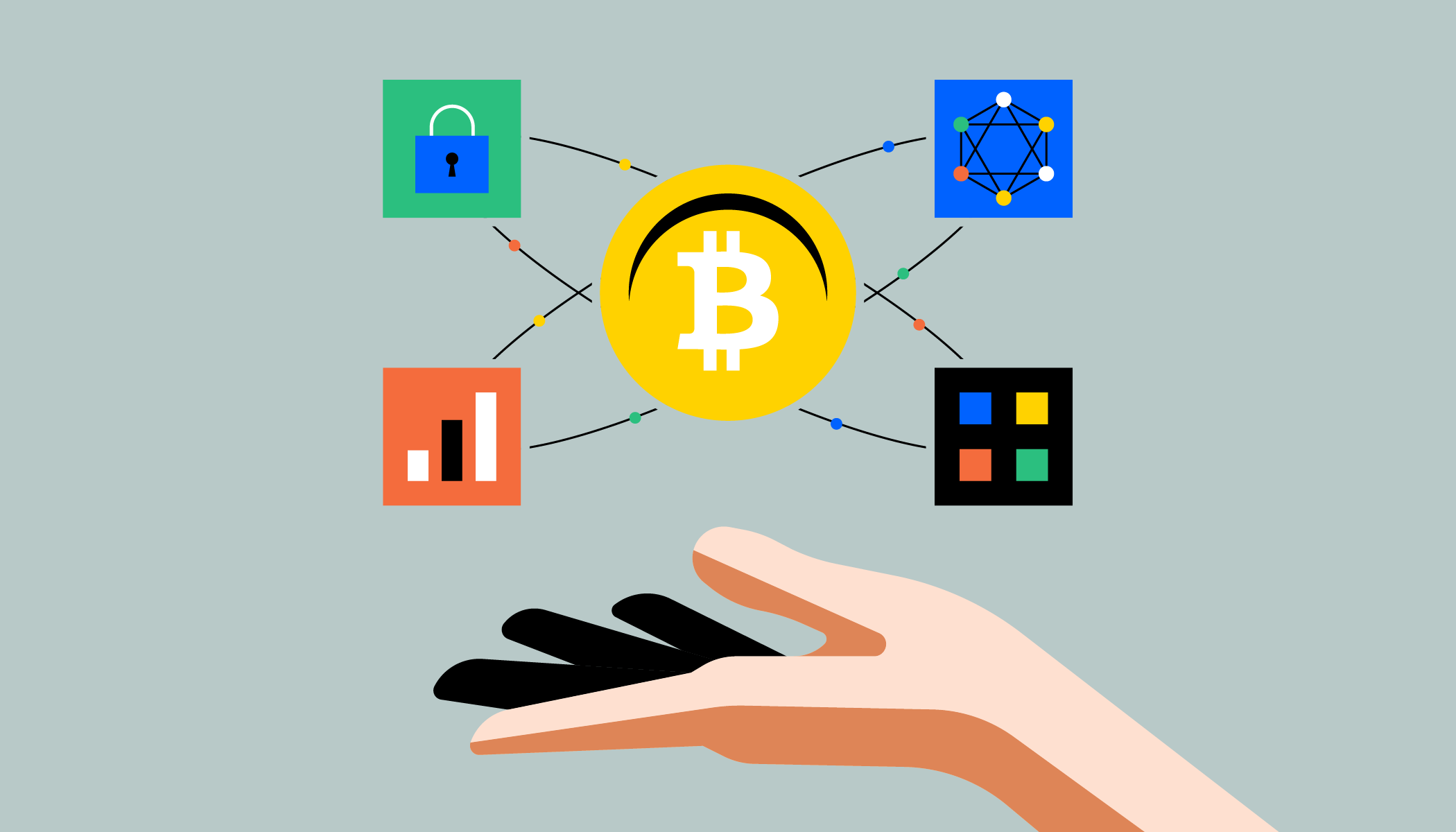Bitcoin: All You Need to Know
Introduction
Are you intrigued by Bitcoin but don't know where to begin? Look no further! In this comprehensive guide, we will take you on a journey through the world of Bitcoin, covering everything you need to know. Whether you're a newbie or have some knowledge already, this article is designed to provide valuable insights and clear up any confusion.
Bitcoin, the groundbreaking cryptocurrency, has taken the financial world by storm. Created in 2009 by an unknown person or group of individuals using the pseudonym Satoshi Nakamoto, Bitcoin has revolutionized the way we view and use money. With its decentralized nature and cryptographic security, Bitcoin offers a unique alternative to traditional currencies.
From understanding the underlying technology, known as blockchain, to getting started with buying and selling Bitcoin, we will guide you through every step. We will also explore the potential benefits and risks of investing in Bitcoin, as well as its impact on the global economy. By the end of this article, you'll be equipped with the knowledge to navigate the world of Bitcoin confidently.
So, fasten your seatbelt and get ready to unlock the secrets of Bitcoin! Whether you want to dive into the world of cryptocurrencies or simply want to expand your knowledge, this guide has got you covered. Let's get started!
How Does Bitcoin Work?
Bitcoin operates on a decentralized network, known as the blockchain, which is a public ledger that records all transactions. This means that there is no central authority controlling Bitcoin, making it resistant to censorship and government interference. Transactions are verified by network participants, known as miners, who use powerful computers to solve complex mathematical problems. Once a transaction is verified, it is added to a block, which is then added to the blockchain.
The blockchain ensures the security and immutability of Bitcoin transactions. Each transaction is encrypted and linked to the previous transaction, forming a chain of blocks. This makes it virtually impossible for anyone to alter the transaction history or counterfeit Bitcoins. Additionally, Bitcoin transactions are pseudonymous, meaning that users are identified by their public addresses rather than their personal information. This provides a certain level of privacy and anonymity.
Bitcoin's supply is limited to 21 million coins, which makes it a deflationary currency. This scarcity is achieved through a process called halving, where the block rewards given to miners are reduced by half every four years. As a result, Bitcoin becomes increasingly difficult to mine over time, making it more valuable. This limited supply and increasing demand contribute to Bitcoin's store of value properties.
Advantages of Using Bitcoin
One of the main advantages of using Bitcoin is the low transaction fees compared to traditional financial systems. Bitcoin transactions are processed directly between users without the need for intermediaries such as banks. This eliminates the fees associated with traditional payment methods, making Bitcoin an attractive option for cross-border transactions and remittances.
Another advantage of Bitcoin is its fast and borderless nature. Bitcoin transactions can be conducted instantly, regardless of geographical location or time zone. This makes it convenient for individuals and businesses operating on a global scale. Additionally, Bitcoin transactions can be made 24/7, unlike traditional banking systems that have limited operating hours.
Bitcoin also offers a level of financial freedom and control that is not possible with traditional currencies. With Bitcoin, you are the sole owner and custodian of your funds. You have full control over your transactions and can send or receive any amount of money without limitations. This eliminates the need to rely on third parties and reduces the risk of funds being frozen or seized.
Disadvantages of Using Bitcoin
While Bitcoin has numerous advantages, it also has some disadvantages that should be considered. One of the main concerns is the volatility of Bitcoin's price. The value of Bitcoin can fluctuate dramatically within a short period, which can lead to significant gains or losses for investors. This volatility makes Bitcoin a risky investment and may not be suitable for everyone.
Another disadvantage is the potential for security breaches. While the blockchain technology underlying Bitcoin is secure, individual users can be vulnerable to hacking and scams. It is crucial to take proper security measures, such as using strong passwords, enabling two-factor authentication, and storing your Bitcoins in secure wallets. Additionally, the irreversible nature of Bitcoin transactions means that if you send funds to the wrong address or fall victim to a scam, it is challenging to recover your funds.
Regulatory uncertainty is another concern when it comes to Bitcoin. As Bitcoin operates outside the traditional financial system, there are often conflicting regulations and laws regarding its use. This can lead to uncertainties and challenges for businesses and individuals looking to adopt Bitcoin as a payment method. It is essential to stay informed about the legal and regulatory landscape surrounding Bitcoin in your jurisdiction.
Bitcoin Mining and Its Significance
Bitcoin mining plays a vital role in maintaining the security and integrity of the Bitcoin network. Miners use specialized hardware and software to solve complex mathematical problems, which validate and confirm transactions. In return for their efforts, miners are rewarded with newly minted Bitcoins and transaction fees.
Mining serves two primary purposes in the Bitcoin ecosystem. First, it adds new Bitcoins into circulation, ensuring a steady supply. Second, it secures the network by validating and confirming transactions. Due to the intense computational power required for mining, miners are incentivized to act honestly and follow the rules of the network. Any attempt to manipulate or cheat the system would require an immense amount of computing power, making it economically infeasible.
However, Bitcoin mining has come under criticism due to its environmental impact. The energy consumption associated with mining has raised concerns about its carbon footprint. The process of mining requires a significant amount of electricity, primarily from non-renewable sources. As a result, there are ongoing efforts to develop more energy-efficient mining methods and explore alternative consensus mechanisms, such as proof-of-stake.
The Role of Blockchain Technology in Bitcoin
Blockchain technology is the backbone of Bitcoin and other cryptocurrencies. It is a distributed ledger that records all transactions in a transparent and tamper-proof manner. The blockchain consists of a chain of blocks, with each block containing a list of verified transactions. These blocks are linked together using cryptographic hashes, forming an immutable record of all transactions.
The decentralized and transparent nature of the blockchain ensures the security and integrity of Bitcoin. As transactions are recorded on multiple nodes across the network, it is extremely difficult for a single entity to manipulate the blockchain. This makes Bitcoin resistant to fraud, censorship, and double-spending.
Blockchain technology has applications beyond cryptocurrencies. It has the potential to revolutionize various industries, including finance, supply chain management, healthcare, and more. The transparency and immutability of the blockchain can enhance trust, streamline processes, and reduce costs. As the adoption of blockchain technology grows, it is expected to have a profound impact on the global economy.
Bitcoin Wallets and Security Measures
To store and manage your Bitcoins, you need a Bitcoin wallet. A Bitcoin wallet is a digital wallet that allows you to send, receive, and store Bitcoins securely. There are various types of wallets available, including software wallets, hardware wallets, and online wallets.
Software wallets are applications that you can install on your computer or mobile device. They provide a convenient way to access and manage your Bitcoins but can be susceptible to malware and hacking. It is essential to keep your software wallet updated and use reputable wallet providers.
Hardware wallets, on the other hand, are physical devices designed specifically for storing cryptocurrencies. They offer the highest level of security as they store your private keys offline, away from potential threats. Hardware wallets are considered the most secure way to store your Bitcoins, but they come at a cost.
Online wallets, also known as web wallets, are wallets that are hosted on the internet. While they are convenient to use, they are more susceptible to hacking and phishing attacks. It is crucial to choose a reputable online wallet provider and enable additional security measures, such as two-factor authentication.
Regardless of the type of wallet you choose, it is essential to follow best practices for securing your Bitcoins. This includes using strong and unique passwords, enabling two-factor authentication, and regularly backing up your wallet. By taking these security measures, you can mitigate the risk of losing your Bitcoins to theft or unauthorized access.
How to Buy and Sell Bitcoin
Buying and selling Bitcoin can be done through various platforms and exchanges. The process may vary depending on your location and the platform you choose. Here is a general overview of how to buy and sell Bitcoin:
- Choose a Bitcoin exchange: Research and choose a reputable Bitcoin exchange that operates in your country. Look for exchanges with a good track record, strong security measures, and competitive fees.
- Create an account: Sign up for an account on the chosen exchange. This usually involves providing your email address, creating a password, and completing any identity verification requirements.
- Fund your account: Deposit funds into your exchange account using a bank transfer, credit/debit card, or other accepted payment methods. Some exchanges may have minimum deposit requirements.
- Place an order: Once your account is funded, you can place an order to buy or sell Bitcoin. Specify the amount you want to buy/sell and the desired price. The order will be executed if there is a match with another user on the exchange.
- Store your Bitcoins: After purchasing Bitcoin, it is recommended to transfer your Bitcoins to a secure wallet that you control. This ensures that you have full control over your funds and reduces the risk of loss due to exchange hacks or shutdowns.
- Selling Bitcoin: To sell Bitcoin, you can follow a similar process on the exchange. Place an order to sell your Bitcoin at the desired price, and once matched with a buyer, the funds will be credited to your exchange account.
It is important to note that the price of Bitcoin can fluctuate rapidly. It is advisable to do thorough research, set realistic expectations, and only invest what you can afford to lose. Additionally, be aware of potential scams and phishing attempts when dealing with cryptocurrency exchanges. Always double-check the website's URL and enable two-factor authentication for added security.
Current Trends and Future of Bitcoin
Bitcoin has come a long way since its inception in 2009. Over the years, it has gained increased adoption and recognition as a legitimate asset class. Bitcoin's market capitalization has grown significantly, and it has attracted the attention of institutional investors, governments, and the general public.
One of the current trends in the Bitcoin space is the growing interest from institutional investors. Large financial institutions and corporations are starting to view Bitcoin as a hedge against traditional financial systems and inflation. This increased demand from institutional investors has contributed to the recent surge in Bitcoin's price.
Another trend is the integration of Bitcoin into mainstream financial services. Traditional financial institutions are exploring ways to offer Bitcoin-related products and services to their customers. This includes custody services, futures trading, and investment funds focused on cryptocurrencies. The entry of established players into the Bitcoin market is expected to bring more liquidity and stability to the ecosystem.
Looking into the future, Bitcoin's potential impact on the global economy cannot be ignored. As more countries and individuals adopt Bitcoin, it has the potential to disrupt traditional financial systems and reshape the way we transact and store value. Bitcoin's decentralized nature and borderless transactions make it an attractive option for individuals in countries with unstable economies or limited access to financial services.
There are also ongoing discussions around central bank digital currencies (CBDCs) and their relationship with cryptocurrencies like Bitcoin. Some central banks are exploring the idea of issuing their digital currencies, which could coexist or compete with cryptocurrencies. The development of CBDCs could further legitimize cryptocurrencies and pave the way for wider adoption.
Conclusion
In conclusion, Bitcoin has revolutionized the world of finance by introducing a decentralized, secure, and borderless currency. From understanding its underlying technology, blockchain, to exploring the advantages and disadvantages of using Bitcoin, this guide has provided a comprehensive overview of Bitcoin.
Bitcoin offers numerous advantages, such as low transaction fees, fast transactions, and financial freedom. However, it also comes with risks, including price volatility and security concerns. It is important to weigh the pros and cons before considering Bitcoin as an investment or payment method.
Bitcoin mining plays a crucial role in maintaining the security of the network, while blockchain technology ensures the integrity of transactions. Understanding these concepts is essential in navigating the world of Bitcoin.
When it comes to buying and selling Bitcoin, it is important to choose a reputable exchange, secure your funds in a wallet, and be cautious of potential scams. Additionally, staying informed about current trends and the future of Bitcoin can help you make informed decisions.
Bitcoin's journey is far from over, and its impact on the global economy continues to unfold. Whether you choose to embrace Bitcoin as a form of investment or simply expand your knowledge, it is an exciting time to be a part of the world of cryptocurrencies. So, fasten your seatbelt and dive into the world of Bitcoin - the future of money awaits!






























![[LIVE] Engage2Earn: auspol follower rush](https://cdn.bulbapp.io/frontend/images/c1a761de-5ce9-4e9b-b5b3-dc009e60bfa8/1)








